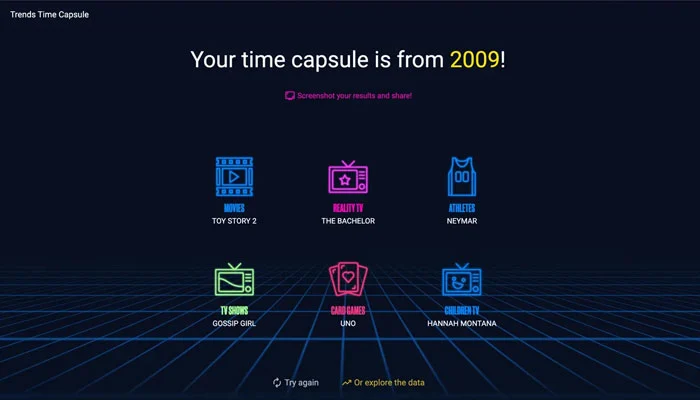Google has introduced a fascinating retrospective tool, the Google Trends Time Capsule, offering users a journey through the top five “most searched” topics in various categories from 1999 to 2023.
This interactive feature provides valuable insights into the evolution of search trends over the past 25 years, allowing users to explore categories such as movies, athletes, and dog breeds.
By visiting the Google Trends Time Capsule site, users can effortlessly navigate through tabs to discover the top picks in each category, accompanied by intriguing facts and highlights.
To add an extra layer of engagement, the tool includes a quick six-question quiz that determines the specific “time capsule” year corresponding to users’ favourite picks across different categories.
This quiz not only deepens the exploration of past search trends but also offers users a personalised connection to the significant moments captured in the digital time capsule.
As part of Google’s 25-year celebration, the company has unveiled additional entertaining experiences, with one notable offering being the Most Searched Playground.
This interactive game challenges users to locate the 25 most searched people, places, and moments from the past 25 years on a clustered map—a playful and reminiscent experience akin to a Google Trends version of “Where’s Waldo.”
For users seeking a more comprehensive understanding of search trends, Google provides the option to watch the Year in Search film, offering a visual journey through the noteworthy events and searches of the year.
Additionally, users can delve into Google’s 2023 Trends Global and Local Lists, offering a detailed exploration of the top trending searches across 210 US regions.

